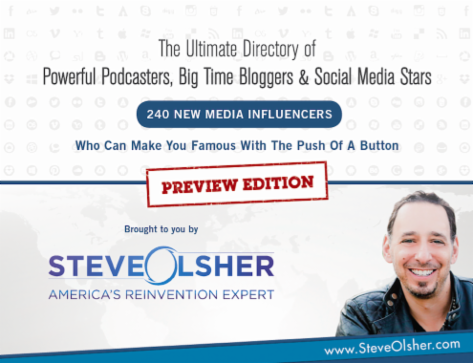There are many ways to measure this growth, and it is not all about money. But money is important. Never listen to anyone who tells you the numbers are not important, as without income there is no business.
No one person holds all the answers to helping you grow your company or enhancing your career. There are many people out there trying to sell their ideas as the best or only answer, but I have found over the decades that you have to take ideas from many places, assemble the concepts that resonate with you, and then take actions.
The part I teach is people. All opportunities come from people, but we live in a world where social media, mobile gadgets and other digital shortcuts get all the attention. If you want to do more, you must make a strong commitment to the humans you engage with regularly.
I recently watched a video where some "guru" was saying that nice isn't respected in business. His opinion was that jerks are more respected because they know what they want and that you cannot necessarily trust someone who is nice. Bull. I am sure his contrarian boasting gets him coaching clients, but my own experience has shown that it is the person who is an ass that will burn you time and time again.
This does not mean you want to be a push-over or weak in your decisions. This guy tried to pain nice as viewed as weak. He sighted a survey as if there are no studies that take the other point of view.
It is easy to get frustrated or burned-out from dealing with others, but in a world where so many are hungry to connect (look at the success of connection apps in business, dating, etc...), it seems people are more alone than ever. Vivek Murthy (former US Surgeon General) wrote an article for the Harvard Business Review about the epidemic of loneliness in the business world. With all of our digital links, likes, shares and follows people feel isolated.
This is where we can all grow our businesses. If we can figure out how to connect with people and make them understand when we see them, they will look back and see who we are and what we do. To grow our business we must grow relationships. We must ask questions. We have to find ways to serve others. It is not about selling in the old manner (pitch and close), but instead it is about showing people we are part of their community.
I have been teaching this for a decade. Many other speakers, consultants, gurus, and others have repetitively told me my topic will not sell, as meeting planners, association committees, and audiences are too easily drawn to those who have contrarian topics. I disagree. People are smart and are not tricked as often as people think. In every economy the power of long-term and mutually beneficial relationships will rise to the top.
I have grown my business and I have always tried to care about people. Even when others do not return the feelings, I still wish them well in my thoughts. I don't get bruised too easily in the area of making connections, because I am aware you cannot connect with everyone. But by choosing people on a consistent basis I have seen my income rise.
Take all the advice you can find that works for your industry and personality, but never believe for a minute that people are not important. Those who say otherwise are possibly correct in some instances, but not most of the time.
Grow your business by growing your relationships.
Have A Great Day
thom singer




